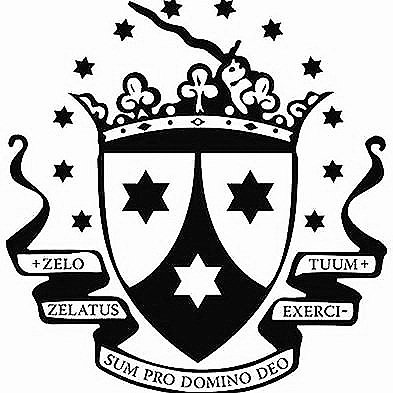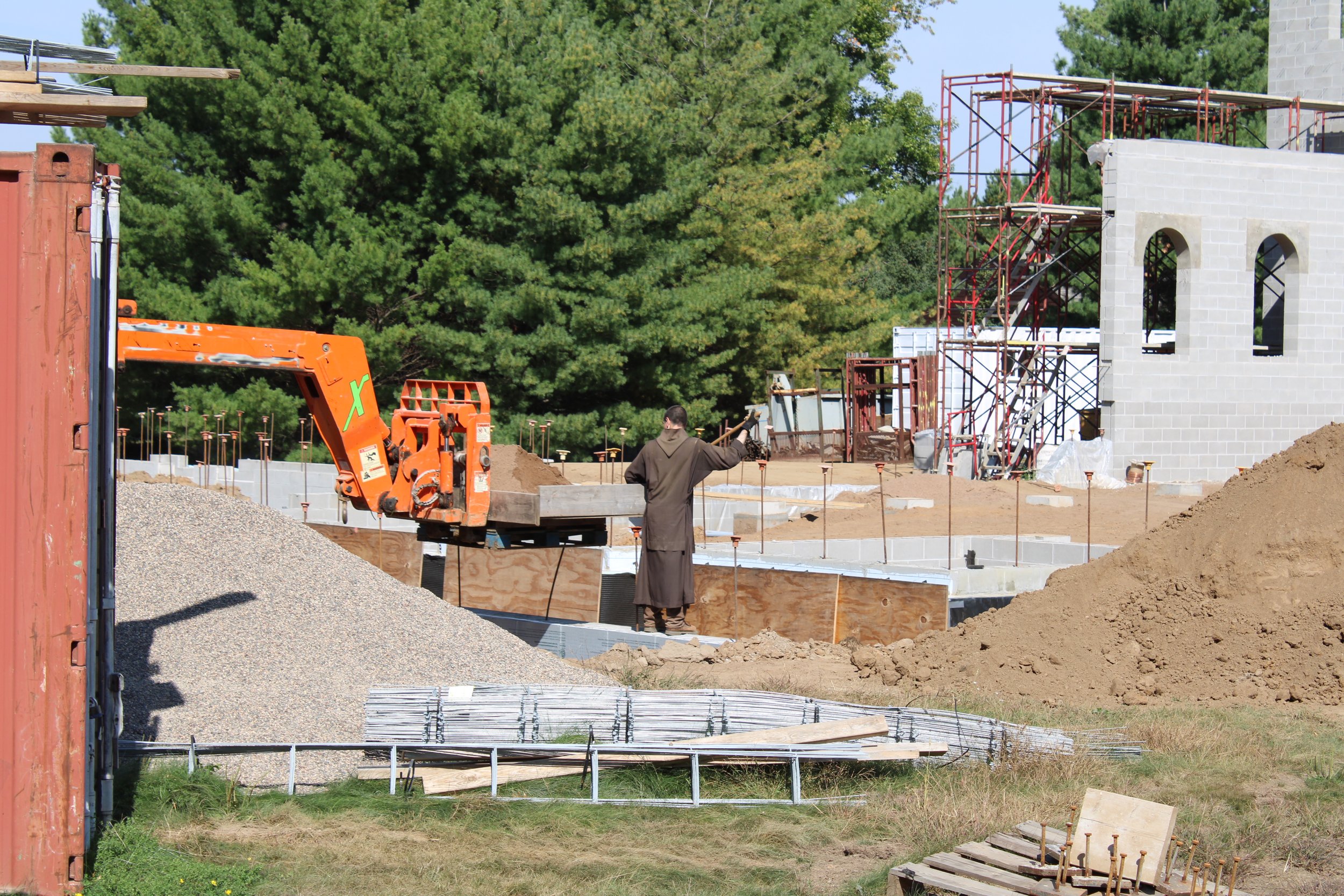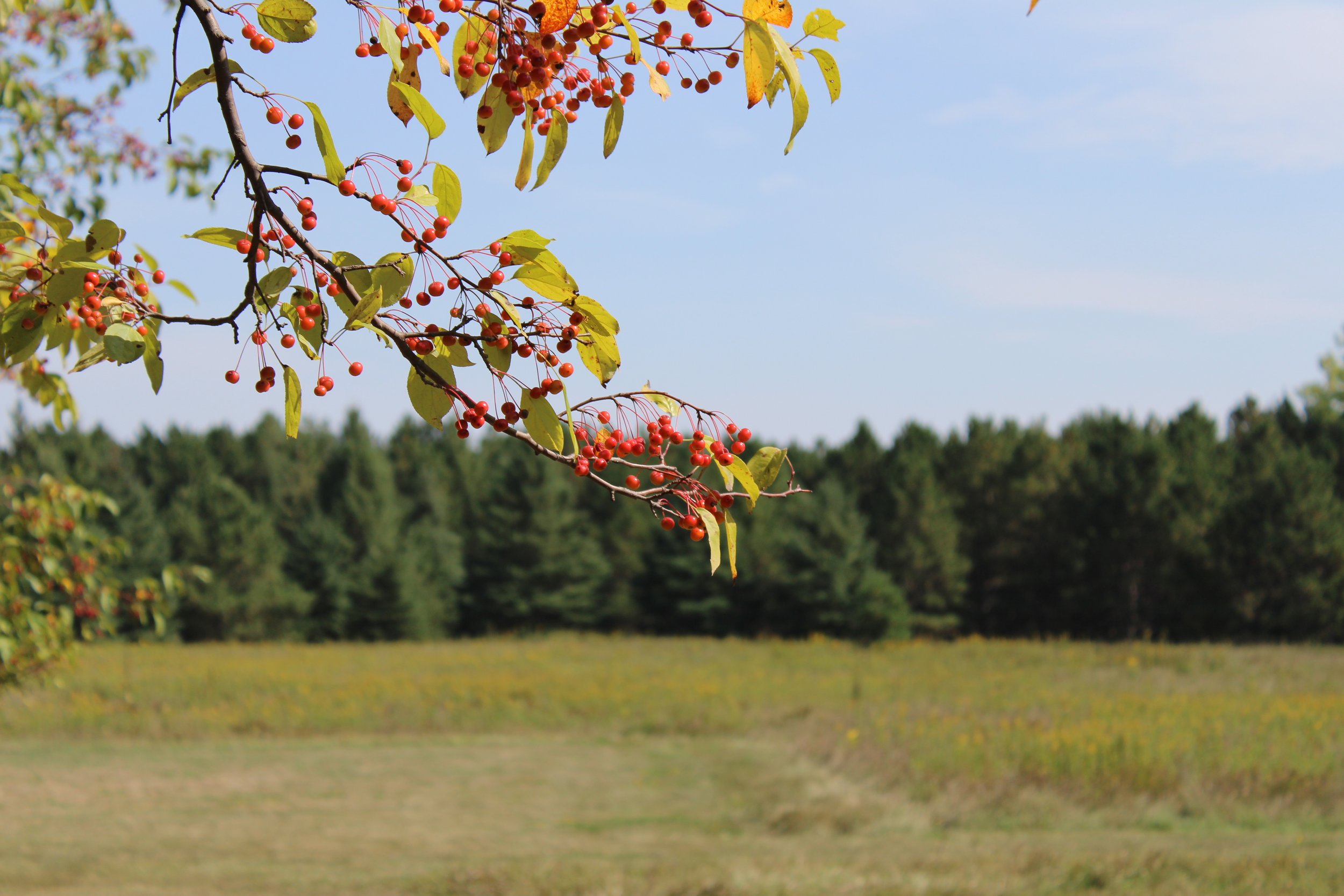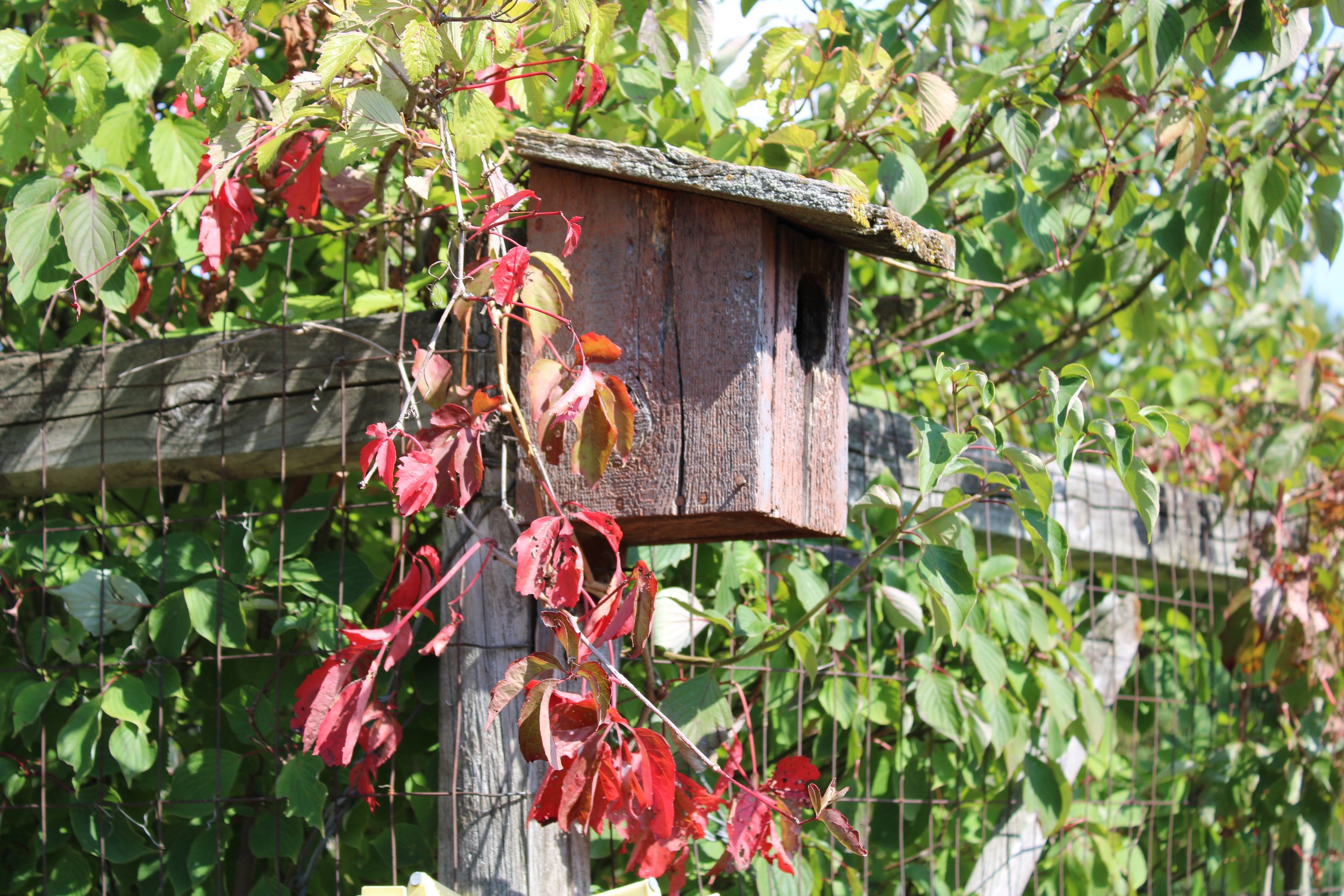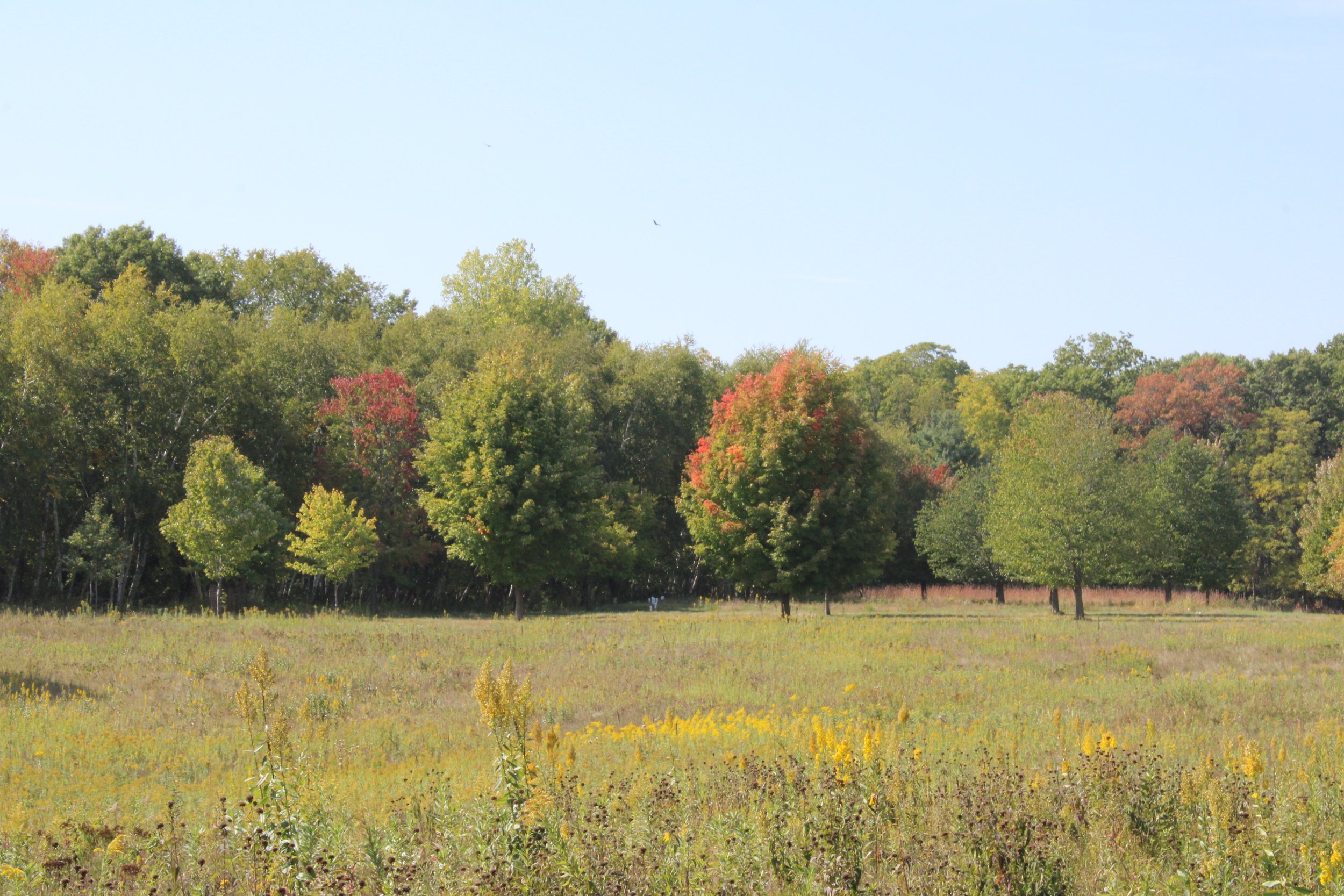"Contemplation is for the Birds?"
As Fall comes into full color, we are hard at work. There is much to do before the snows of Winter arrive. We want to share a little bit of what is happening here at the hermitage, in this Blog Post you will find:
Light for the Way, Love for the Wayfaring: “Contemplation is for the Birds?”
Prayer Corner - Prophet of Carmel: “As the Lord God Lives”
Construction Update
Fall Colors and Deer Friends: Pictures of the Monastery
Respect Life Team of Guardian Angels Parish Hosts Matt Birk
We hope you enjoy the articles and the pictures. Know that you are always in our prayers. Also, please join us for our final Open House of the Year on Saturday, October 21st from 10:30 a.m. - 12:00 p.m. We would love to see you in person.
God bless you!
The Carmelite Hermits
Light for the Way, Love for the Wayfaring
“Contemplation is for the birds?”
Over the years, I have met many people who have taken an interest in what is called "birding." I never would have known that such a hobby, as bird watching, could be so fascinating and enjoyable. Birding is not just for the experts. In fact, it is something which is quite prayerful and even contemplative. At the monastery there are many occasions for delighting in the sight and song of these little, winged creatures of God. As we will see, it seems that John of the Cross spent a great deal of time watching birds. He would often draw lessons from nature in order to teach about the spiritual life. The following saying is just such an example:
"The traits of the solitary bird are five: first, it seeks the highest place; second, it withstands no company; third, it holds its beak in the air; fourth, it has no definite color; fifth, it sings sweetly. These traits must be possessed by the contemplative soul. It must rise above passing things, paying no more heed to them than if they did not exist. It must likewise be so fond of silence and solitude that it does not tolerate the company of another creature. It must hold its beak in the air of the Holy Spirit, responding to his inspirations, that by so doing it may become worthy of his company. It must have no definite color, desiring to do nothing definite other than the will of God. It must sing sweetly in the contemplation and love of its Bridegroom."
- Sayings of Light and Love #122
John uses the image of a bird on the rooftop (in my imagination a song sparrow which, according to his description, fits the bill perfectly… pun intended) to describe a soul and the necessary elements characteristic of lofty prayer - what he names as highest contemplation. In summary, contemplatives are supposed to be high flyers. The only way to soar to God is by trying to become like the bird that he has in hand. The traits of the contemplative are five like that of the solitary bird and they are: detached, silent and alone, open to the inspirations of the Holy Spirit, mortified in desire and wanting only the will of God, singing always the praises of the Beloved.
The question is: how does one reach the heights of union with God? Detachment, mortification, silent love, and the movements of the Holy Spirit are all common themes of John's discussion on prayer and union with God. These are the elements of flying off to the heights of God and Christian perfection. The image of the bird perched in the highest place is expressive of the entire journey which is made in his ascetical treatise, the Ascent of Mount Carmel. The bird is the soul, its flight is contemplation, its song is the joy and delight of the experience of union with God. The sight of the bird in its lofty perch vividly illustrates the dynamism of detachment and freedom of spirit. John wants us to fly like this little bird and to sing his song. This means we have to take on the qualities of that sparrow which John of the Cross is describing. Take time to think about those qualities and ask God to give you wings, pointing you in the right direction by the inspirations of his Spirit. Learn to live in the company of the Holy Spirit and to be borne up by his breathings - that is his inspiration.
Here are a few more sayings which complement the present analogy and further illuminate the instruction of St. John of the Cross:
"A bird caught in birdlime has a twofold task: It must free itself and cleanse itself. And by satisfying their appetites, people suffer in a twofold way: They must detach themselves and, after being detached, clean themselves of what has clung to them."
- Sayings of Light and Love, #22.
In order to enjoy highest contemplation, purification of the soul is necessary. It will not fly until it has freed itself from all attachments. The things of this earth know how to cling to us. We have to learn how to shake off the bonds of these attachments. This kind of detachment leads to that feeling of being "as light as a feather." Everyone knows what I'm talking about. It's that feeling when something which the mind and heart have been bearing with great heaviness but has now finally been relieved. Our attachments create those burdens! Who wants to hold onto all that weight? St. John is telling us to throw off all the burdens of our desires and to take on lightness of soul. It feels good to shake off all that unnecessary weight and to fly like a bird. It is the desire for God that will make us fly, every lesser desire is just dead weight and will hold us back. Hence, the following observation:
"Those who do not allow their appetites to carry them away will soar in their spirit as swiftly as the bird that lacks no feathers."
- Sayings of Light and Love, #23.
Perhaps, when composing these sayings, John was watching a bird at the bird bath splashing around in the water and taking the time to preen its feathers before it took off with great speed, swiftly ascending in its flight towards the sun in the skies.
St. John of the Cross has also noted the following in his experience as a spiritual birder:
"It makes little difference whether a bird is tied by a thin thread or by a cord. Even if it is tied by thread, the bird will be held bound just as surely as if it were tied by cord; that is, it will be impeded from flying as long as it does not break the thread. Admittedly the thread is easier to break, but no matter how easily this may be done, the bird will not fly away without first doing so. This is the lot of those who are attached to something: No matter how much virtue they have they will not reach the freedom of the divine union."
- Ascent of Mount Carmel I, 11, 4
Here in the Ascent, John explains that you can have all the virtue in the world and yet it will not be enough to reach union with God so long as a single attachment remains. That attachment is the thread which holds the bird back from flying. His strong recommendation: "beat your wings as hard as you can and break that thread!" John wants all of us to be high flyers and he does not want anything, however small, to keep us from reaching the heights of union with God. Who doesn't long for the freedom that we see in the birds as they fly with lightness through the air?
Without being too lengthy in the present reflection (it would take time to unpack each of the features of the little bird perched in John's thought), it is worth just watching this bird… that is, to experience for a moment the joy of a spiritual birder. What does the sparrow in its song say to you about prayer? Wouldn't you like to possess his freedom to fly, and the joy of his song?
With these sayings, John of the Cross gives us a birds-eye view of the spiritual life…. Skies the limit! Contemplation is not for the birds; it is for souls created in the image and likeness of God! And God wants to give you wings…
Prayer Corner
- Prophet of Carmel -
“As the Lord God Lives”
Prophecy – To Be Before God
The office of prophecy in Israel signifies a reality that has various meanings; and yet, before all else it is a stance before God. We see this in the person of Elijah, especially as he announces himself to Ahab in their first encounter.
A stance? By that word, I mean a real standing before the face of God – signifying an intimate encounter with the Divine. God is immediately present to his prophet by his imminence; he is close. This is the God who is “I Am.” As Cardinal Ratzinger would put it in his Introduction to Christianity: God reveals himself as “Being-for.” God, in so many ways, tells his people that he is God for them. God says, “I Am” here for you… (pg. 128). Yes, prophecy is a way of being before God… of being present to God who is already present to the individual and to his whole people. As St. Paul teaches, when speaking to the Athenians: “he is not far from each one of us, for ‘In him we live and move and have our being.’” (Acts 17, 27—28). This takes some thought. God, and for that matter Elijah, are not Ahab’s adversaries. This confrontation is not adversarial. God and his prophet are for Ahab and the kingdom. Elijah and the Lord God are Israel’s best promoters. It’s worth thinking about; because, sometimes, we think God is against us when things do not go our way. God is not standing in our way when he comes before us. The Lord is simply being present in love to the creature he has created. Take a moment to be before him… and let him be God for you!
For a prophet, especially like Elijah, this sense of always living and moving in God is particularly acute. The profession of the prophet is “to be” always before God. The prophet’s being is always radically directed to God and his presence. For Carmelites, we see how Elijah’s opening statement summarizes our entire vocation as religious.
“Where shall I go from your Spirit? Or where shall I flee from your presence?” (Ps 139, 7).
The action and movement within the narrative of Elijah’s doings, his comings and goings, are all prompted by God. Elijah is living within the framework of salvation history, which means the prophet is simply following God’s design for his people as it unfolds in time. God’s word and wisdom will direct the whole course of Elijah’s career. He is truly a man of God. The word of the Lord is a powerful force in the mind of Elijah. It seizes him at times and is the motive behind each step that he takes in his journeys:
After his initial encounter with Ahab, we are told that “…the word of the Lord came to him…” to direct him to the brook Cherith; from the wadi, Elijah is once again directed by a divine utterance: “…then the word of the Lord came to him…” and off he goes to the widow of Zarephath. After years of drought, it comes time to confront Ahab once more: “After many days the word of the Lord came to Elijah, in the third year…” and the contest is initiated by Divine command. As soon as Elijah offers the sacrifice on Mount Carmel, the word of the Lord takes the prophet in hand and seizes him: “And the hand of the Lord was on Elijah; and he girded up his loins and ran before Ahab to the entrance of Jezreel.” About a 15-mile run – a marathon sustained under the impetus of the Spirit! An angel instructs the desolate man of God in the wilderness as he flees the death threats of Jezebel, the angry queen… and God will speak to Elijah on Mount Horeb: “and there he came to a cave, and lodged there; and behold, the word of the Lord came to him, and he said to him.” In the Naboth affair, God pronounces sentence over king Ahab and Jezebel by speaking directly through Elijah: “then the word of the Lord came to Elijah the Tishbite…” Ahaziah comes to rule Israel after the death of his father Ahab and he too falls into the temptation of idolatry. Elijah is sent to confront this young king with a signal from God: “but the angel of the Lord said to Elijah the Tishbite…” Finally, it is time for Elijah’s departure and he is once more sent under the influence of God’s word: “…the Lord has sent me as far as Bethel… to Jericho… to the Jordan.” (1 Kgs 17,2; 17,8; 18,1; 18,46; 19,5-8; 19,9; 21,17; 2 Kgs 1,3; 2,2; 2,4; 2,6).
From start to finish Elijah is always under the direct influence of the word of the Lord: his hand upon him, his angel guiding his course. Elijah cannot operate except in response to the Word. We can assume that the very first confrontation with Ahab was also initiated by the Word at work in the mind and heart of the prophet. This then is the first feature of prophecy that we note in the career of Elijah – a complete openness to the Word of God. He runs in the way of God at his word. A prophet is one to whom God speaks directly, and the prophet in turn hears. His duty upon hearing, is to obey the divine utterances. There is almost a personification of the Word in these visits to the prophet, as if Elijah were experiencing God in a personal manner.
What is a Prophet?
Fr. Simeon, in his commentary on the Gospel of Matthew entitled Fire of Mercy Heart of the Word, defines a “prophet” (προφετης– from the verb προφεμι = to speak before) not as one who says things before they happen (interpreting the prefix προ - in the temporal sense); but, rather as one who goes before the face of God proclaiming his words and his will (the prefix in the spatial sense). (Vol. 1, pg. 70). To speak of a stance before God, or to stand before God, is to speak of going before the face of God. In the second moment, the prophet goes forth (still under the gaze of God, i.e., remaining before God / abiding in his presence) to proclaim his words and his will. And this is what Elijah is now doing as he stands before Ahab. By his own presence, Elijah brings the king of Israel to a face-to-face encounter with God.
Elijah declares before Ahab: “As the Lord the God of Israel lives, before whom I stand…” (1 Kgs 17, 1). Elijah is making a stand. He stands before God to serve him; but also, to pray, and finally to stand before the people. “For the Lord your God has chosen him out of all your tribes, to stand and minister in the name of the Lord, him and his sons forever.” (Dt 18, 5). He is God’s chosen instrument to serve him in this time of crisis – to call Israel back to the true worship of God. Elijah comes from his place of prayer to stand before God’s people who is represented in the person of the king. In this case Elijah stands with God and against Israel in their idolatry. Elijah is declaring that God cannot stand such infidelity, and will no longer tolerate it. God will now address the problem, and put his foot down. The prophet as God’s “stand-in” will become a stumbling block in the path of the king and his people. Elijah will prevent them from going any further down the path on which they are treading – a path that will lead to exile – a “standing apart” from God.
The first words out of the mouth of Elijah are: “As the Lord the God of Israel lives…” The prophet utters the divine name Lord (YHWH). This was the name given to Moses when he asked God what to say to the sons of Israel about the One who sent him to them. Elijah reaffirms the faith of Israel. He provides his credentials and presents himself as the Lord’s official representative. As an ambassador to the Divine, Elijah represents the God who lives (and is not dead like the idols of Baal and Asherah). God is: “I Am Who I Am.” The Lord has come to assert his rights over his people: “But this command I gave them, ‘Obey my voice, and I will be your God, and you shall be my people; and walk in all the way that I command you, that it may be well with you.’” (Jer 7, 23). God desires nothing more than the well-being of his people. Their spiritual health, as a kingdom and nation, depends upon whether or not they find themselves before God – to stand always in his presence. They will live insofar as they acknowledge that God lives and is living in their midst. Elijah speaks in order to call to obedience.
By these same words Elijah indicates that a formal oath is to follow. God is about to speak judgment over his people and over the false Gods they worship. And the only thing Israel can do is to stand before their God who loves them with a jealous love – who will not permit his children to stand anywhere else except in his presence. In this first encounter the prophet of Carmel has placed Israel before the living God! We too stand before the living God.
Construction Update
The Brothers are still hard at work on the jobsite.
Lifting heavy loads… trying to get the work done.
The HVAC installation is almost complete.
Installation of the HVAC piping.
View of the south wall of the chapel which now extends further west. Every inch counts!
Coming in from a morning’s work.
Fall Colors and Deer Friends
We’d like to invite you on a short walk so that you can share with us some of the beauty that we enjoy in these days of early Fall.
We begin inside our cloister. A couple of pumpkins to brighten up the walkway.
The goldfish will be heading indoors pretty soon…
Meanwhile they enjoy the pond in the center of our cloister.
These crabapples will feed the turkey and the deer throughout the winter and add some color against the white snow that will be coming soon.
Now, let’s walk around our back field.
Our fair-feather friends have already flown south. This birdhouse sits on the garden fence.
This trail leads behind our field.
Colors are beginning to show in the leaves of the trees.
Sometimes you run into the deer hiding among the trees and the brush.
Looking west the trees have only just begun to change.
We hope to show some more pictures before the end of the fall. We’ll continue our walk the next time.
Below is a series of pictures which provide a sampling of the parades which we can get in the cool of the evenings.
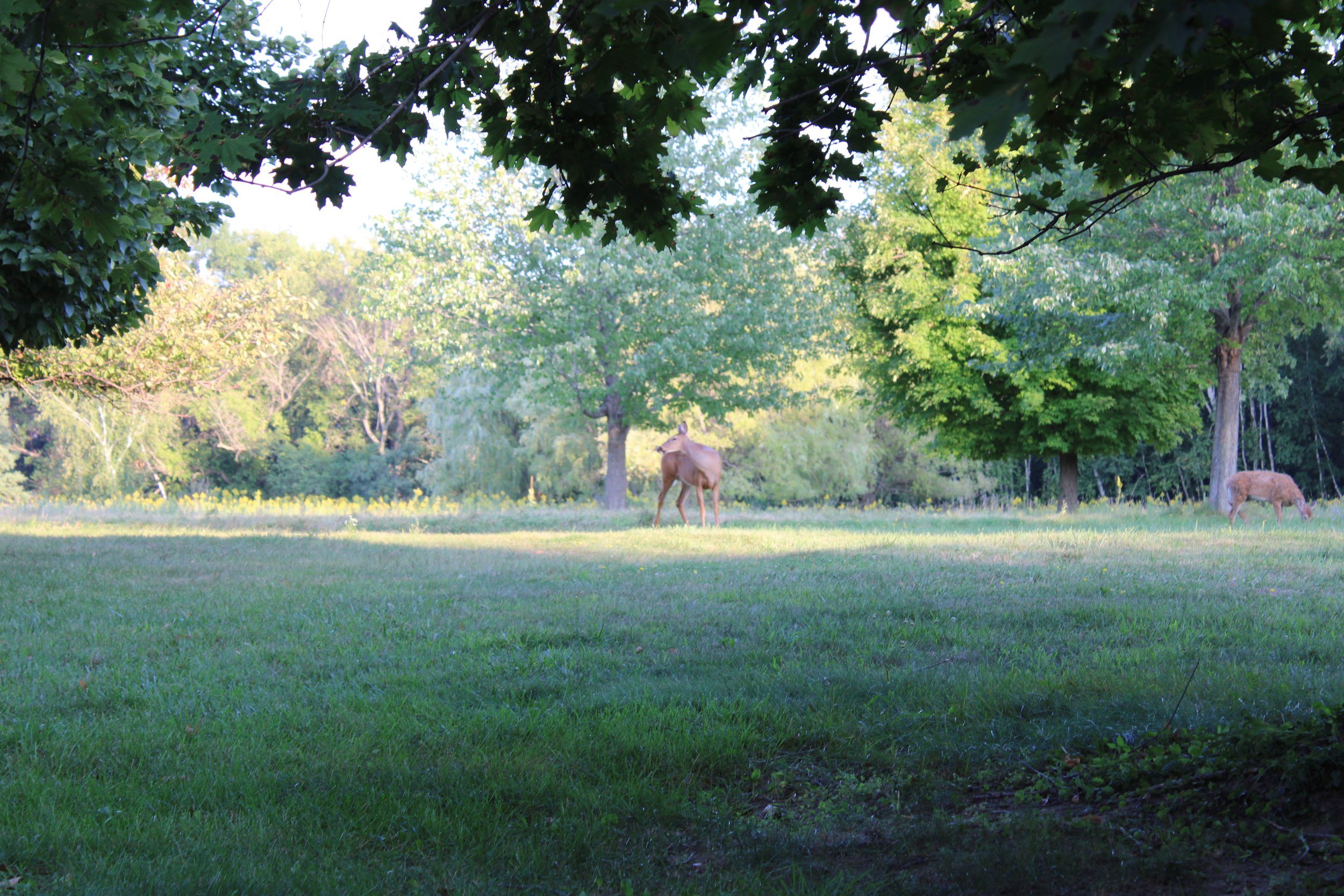
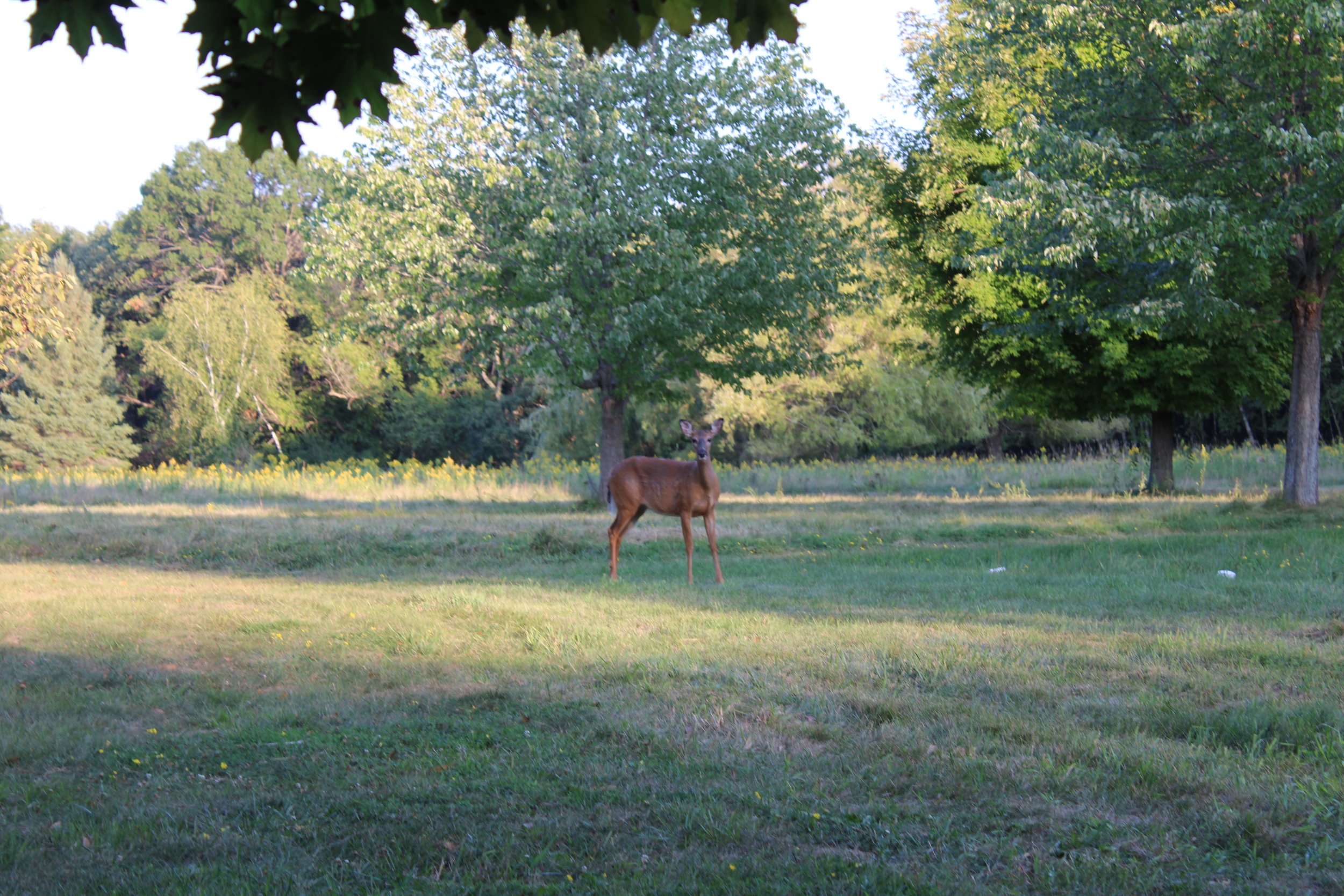
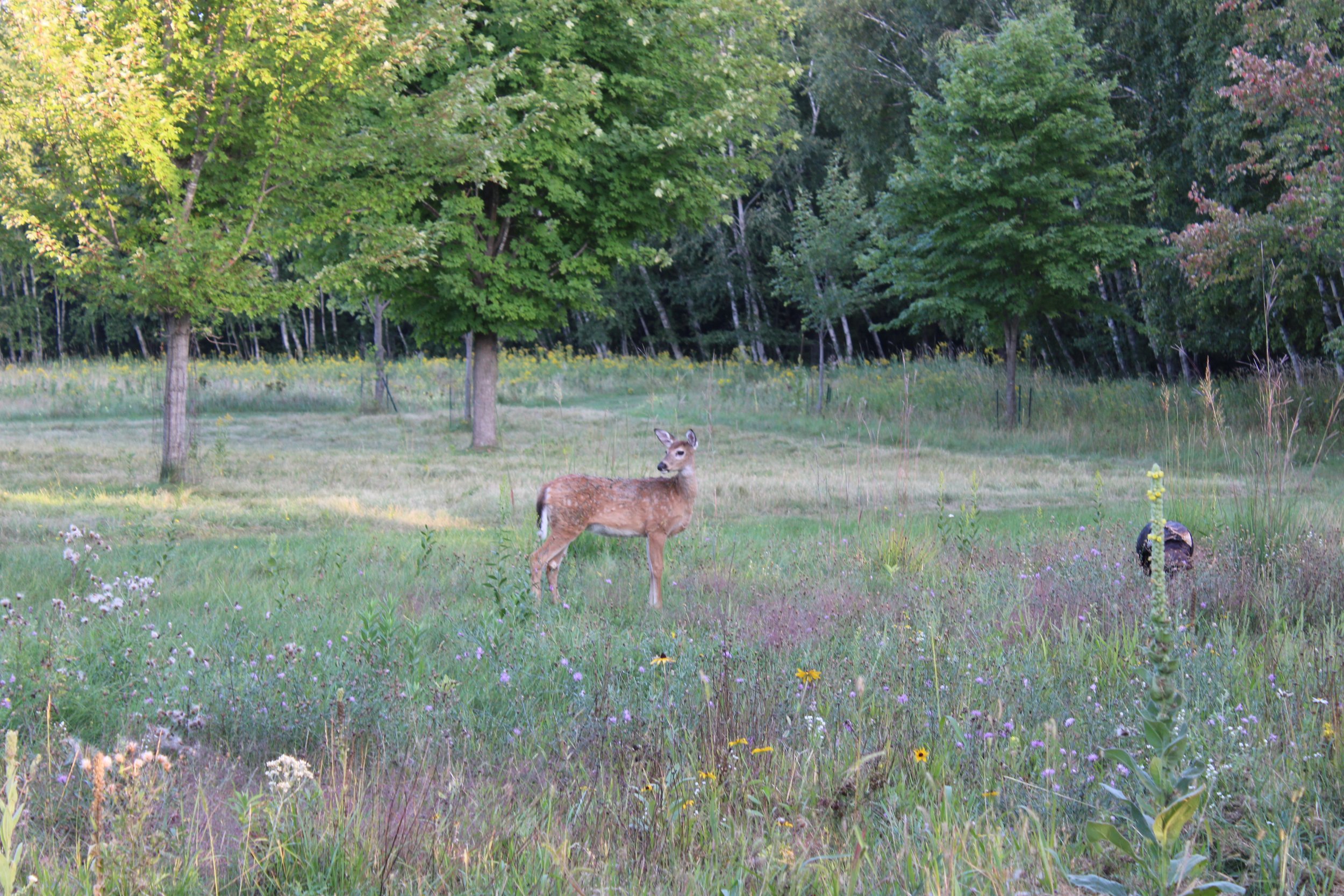

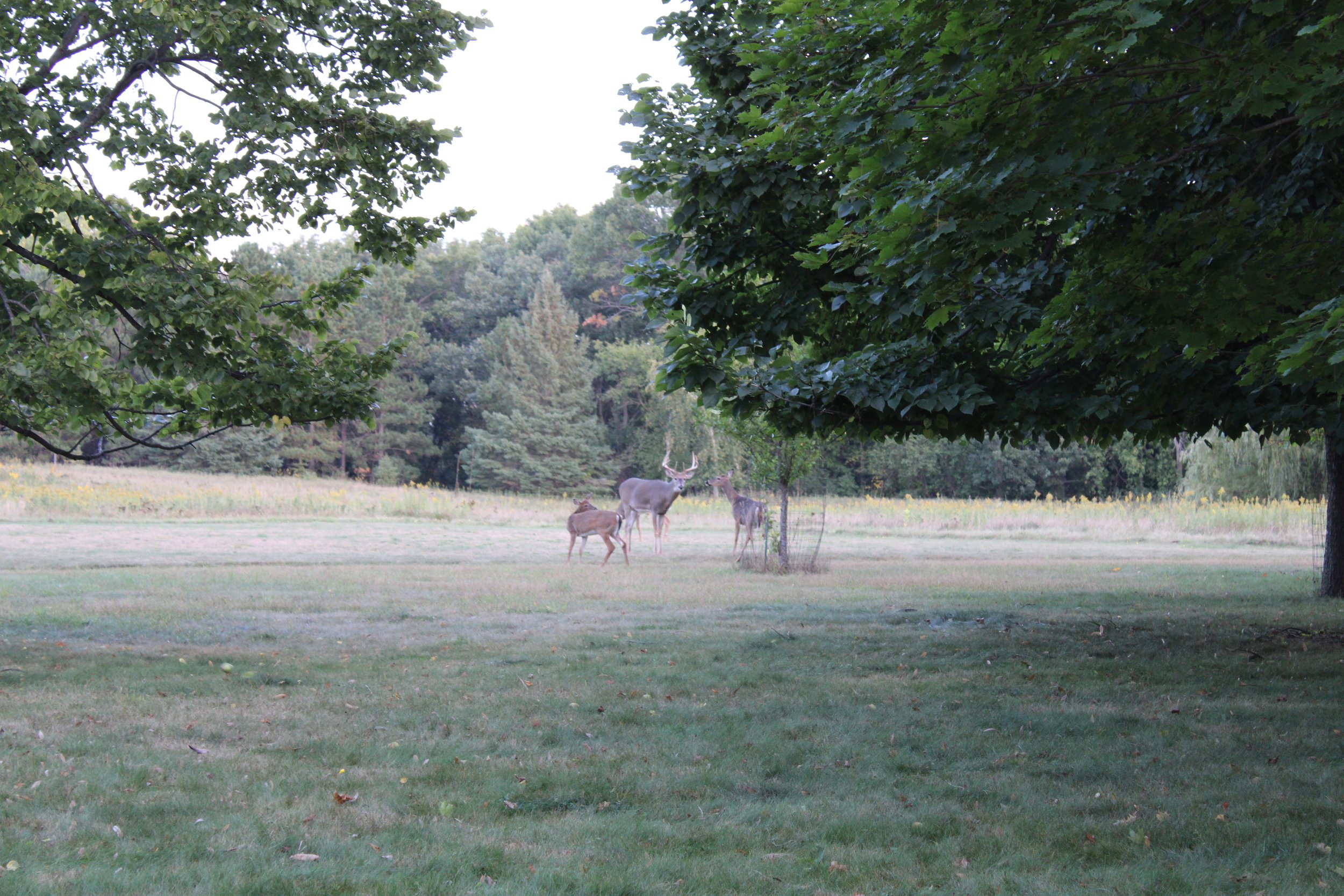
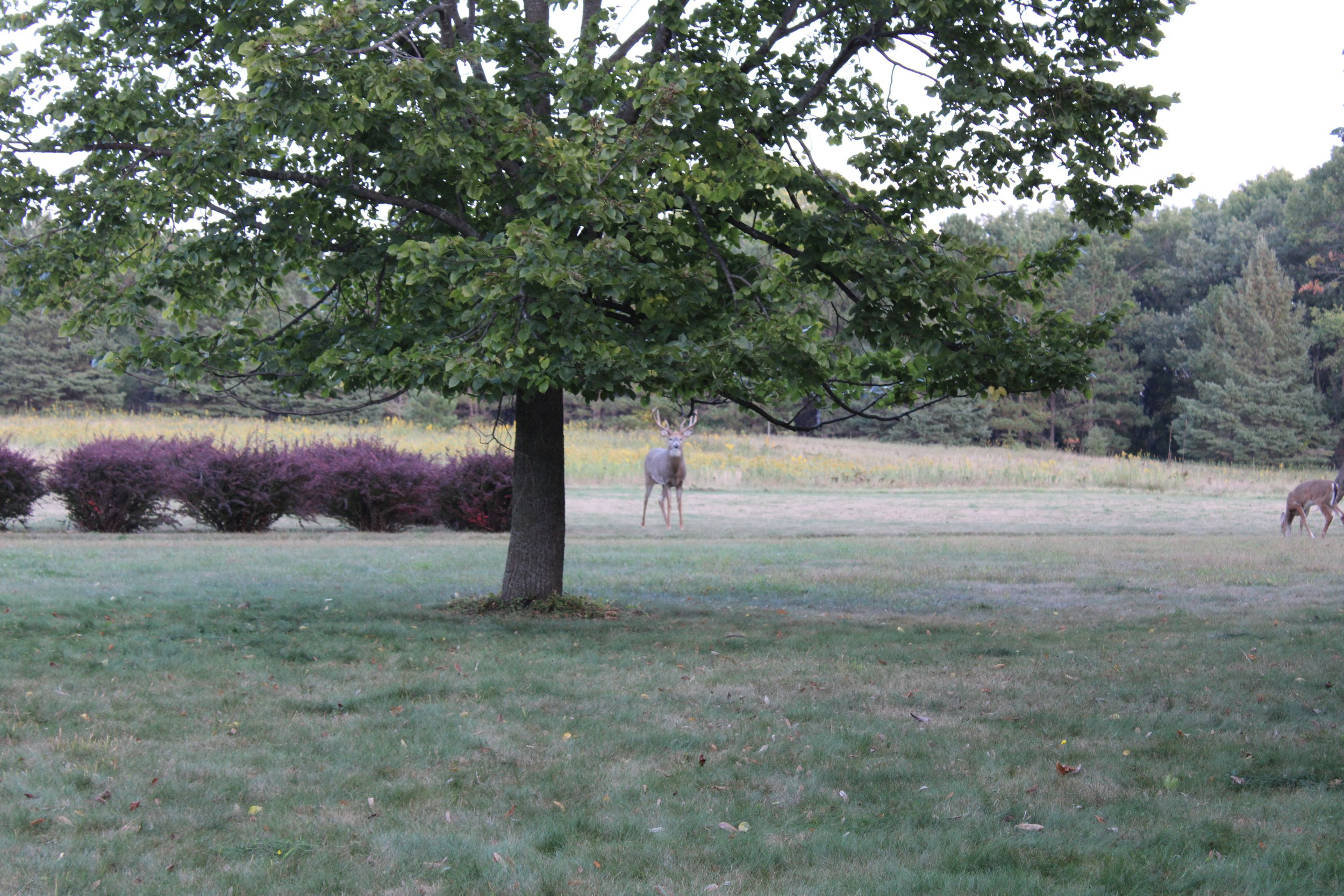
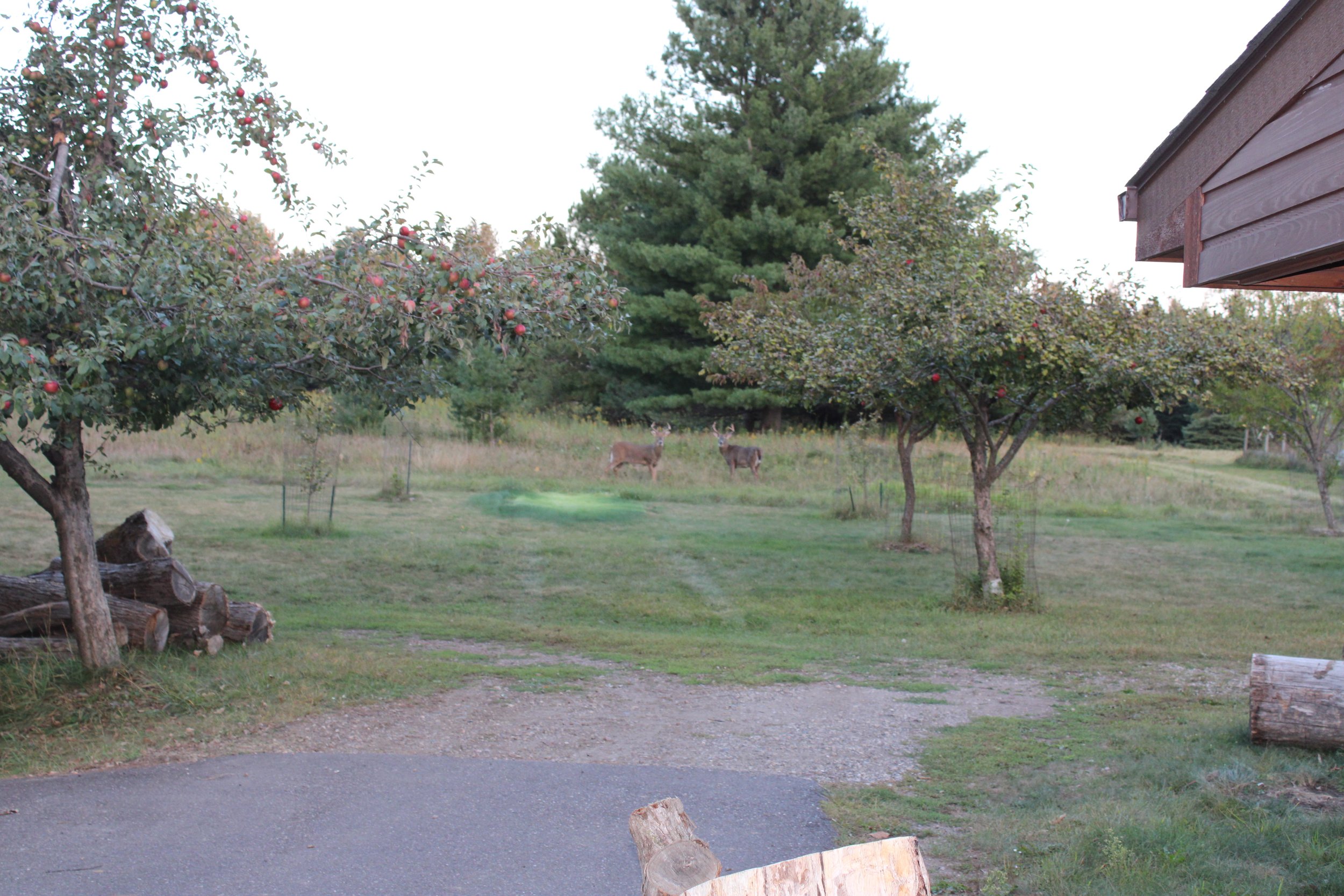
Respect Life Team of Guardian Angels Parish hosts Matt birk
Guardian Angels Parish in Oakdale, MN is joining efforts with our community to help us build our chapel. The following is an event which features former NFL Pro Matt Birk. All proceeds for this talk will be donated to our construction project. The first 25 donors who make a contribution to our chapel from now until November 1st will receive 2 free tickets to this event. We are praying for a full turnout!
Talk on Life & Being a Disciple of Christ
Saturday, November 11, 2023, 8:30 a.m. - 1:00 p.m.
Come and get revived, as the Respect Life Team of Guardian Angels welcomes Matt Birk for his "Talk on Life & Being a Disciple of Christ." Originally from Saint Paul, a former Super Bowl Champion, and beneficiary of a Catholic education, Matt speaks to organizations across the country about the value of true inspiration, the genius of Catholicism, lasting leadership principles, the dynamics of teamwork, the importance of an active faith life, and fulfilling one’s potential. He is a member of the Knights of Columbus as well as on the Boards of numerous pregnancy centers and Pro-Life organizations. Matt is the author of All Pro Wisdom: The Seven Choices that Lead to Greatness.
All are welcome and encouraged to join the parish of Guardian Angels on Saturday, November 11 from 8:30 a.m. - 1:00 p.m. The day will begin with Mass in the main sanctuary followed by a continental breakfast in the Peter O’Neill Social Hall. Fr. John Burns, Prior of the Carmelite Community in Lake Elmo, will provide a brief presentation at 9:45 a.m. and Matt Birk will speak at 10:00a.m. The Respect Life Team will host a discussion from 11:30 a.m. - 1:00 p.m. Please register online at guardian-angels.org. All funds generated are for the Carmelite Hermits’ new chapel. The cost of the event is $20 for adults, $5 for children aged 13-18, and children 12 and under may attend for free. Priests, clergy and seminarians may also attend for free. There are scholarships available.
To discuss disability-related or other adaptations, contact:
MaryPat Potts at mpotts@guardian-angels.org or 651-789-3178.
Guardian Angels Catholic Church
8260 4th Street North
Oakdale, MN 55128
guardian-angels.org | 651-738-2223
